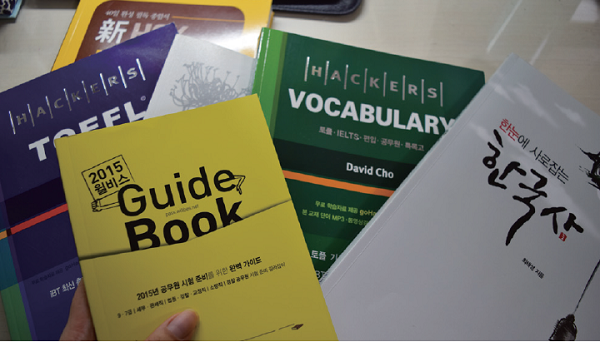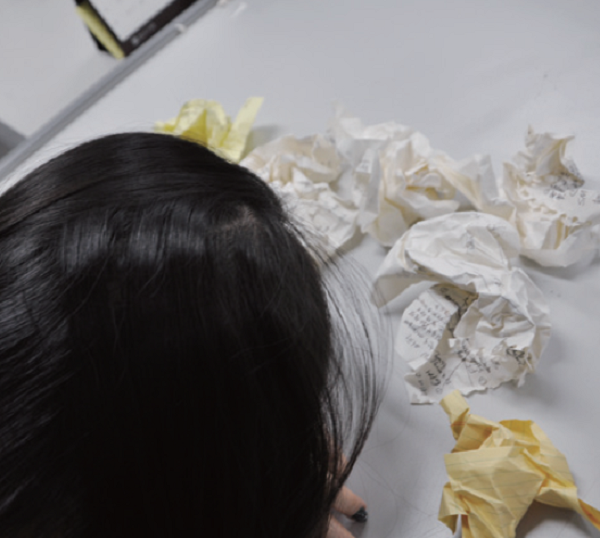
What do you call people in their twenties who live off their family’s wealth? Among many phrases, ‘born with a sliver spoon with one’s mouth’ is the most commonly used one. Nowadays when the phrase is spoken, it is usually uttered in a bittersweet tone. People tend to lightly joke about other’s wealth, but at the same time, they tend to bitterly reflect upon their own finances. Similar to the silver spoon saying, is the neologism ‘dirt spoon,’ which is spreading like a wildfire.
Dirt Spoon, Plastic Spoon

Neologism has become more and more common in 2015, and it directly shows the current state of society. In particular, the younger generations in their 20s and 30s are often a victim of phrases like ‘dirt spoon.’ The original saying ‘born with a silver spoon in one’s mouth’ comes from an aristocratic society where children were fed using silver spoons by nannies, which indicated the wealthy of the family. The new phrase ‘dirt spoon,’ however, refers to something just the opposite. In fact, there is now a SNS test that calculates the metallic type of your spoon based on your family’s fortune. Spoon types range from diamond, gold, silver, bronze, down to dirt. A family’s net finances of 2 billion won will find you at a gold spoon level, 1 billion won at silver, 500 million won at bronze, and at 100 million, your result will be a dirt spoon. Building on that results, today’s twenty-year-olds proposed a lower than dirt level, the plastic spoon level for families who have less than 100 million.
According to an article from the Sookmyung Weekly, 64.4% of students feel pressured with the amount of demands that are placed on them, one of which includes preparing for license certificate tests. Most Sookmyungians would agree that they have no choice but to take license certificate tests because they are essential when applying for a job. Daehaknaeil 20s lab’s revealed that today’s the younger generation has prepared for or attained 5.2 qualifications (licensed certificates) per person.1 However, preparation for a single qualification requires more than 216 hours of part-time employment at minimum wage to pay for the preparation. Also, even 48% of the employed labor force receives less than 2,000,000 won per month.2 Knowing this fact, these 48% of people are considered at the level of dirt spoon, which is likely why this phrase has gained popularity. No matter how hard one strives to improve her/his financial situation, reality inhibits the individual from success due to job competitiveness spattered about society for people in their twenties.
Bitter Neologism? Tip of the Iceberg

The main issue with following the spoon level test is that the reason of spoon class; which is a painful current state of Korean society, is not taken into a consideration. Now, Korea is a fast changing and different society. No longer can the young expect to get a job or reach success by merely being a hard-worker or by simply proposing an idea or two. Comparing to other more slowly developing nations, Korea advanced rapidly and then quickly entered a period of jobless growth. It is for this reason that jobs with less status in Korea are held by low-paid foreign workers or are done by machines. There are few positions for high-skilled job seekers. Unlike the older generations, people in their twenties live in an era of jobless growth that deals with policies made to solve its spoon-fed social class. However, currently, quite a few elderly say the problem is today’s youths’ laziness and lack of creativity. The Ministry of Labor, which felt the elderly’s ideology to be true, and implemented this to a new youth foundation support policy, but it failed instantly.

Also, among individuals, defeatism is spreading. According to the National Statistical Office, 488,000 people are abandoning their search for a job.3 After taking the SNS spoon level test, students soaked or trapped overcome with defeatism. This number of people abandoning the search for a job is the highest in history, and it is increasing. Surfing the internet, it is easy to find people in their twenties joining internet cafés called dirt spoon galleries. They engage in self-mockery and share tips on how to survive as a dirt spoon. Comments include: “in the winter if you can’t afford to turn up the heat, hug an electric rice cooker.” They also play dirt spoon bingo to test their dirt spoon conditions.
Reality Check and Baby Steps

For those seeking jobs now and in the next couple of years, there is a desperate need for support because issues with this spoon class will not disappear any time soon. In one attempt to remove this dirt spoon idea in Korea, people are looking towards overseas employment. In many developing countries, Korean women are highly sought after skilled employees and are appreciated. Hence, many graduate and undergraduate academically sound students are starting to go overseas and willing to work from the bottom up in companies because within just 1 or 2 years, they can quickly get promoted to managerial levels. Every year overseas employment expositions are held and universities are providing more information about working overseas as well. From November 2nd – 4th in booths in front of Myungshin Building, students were able to receive overseas employment and internship information. However, there is a need to increase these types of overseas employee network events to help students to find jobs and get settled in other countries. At Soongsil University, for example, the campus has an alumni association network in the U.S. especially for people working in IT that helps Soongsil University students find jobs and adapt to live in the U.S. Sookmyung should also set up forums for overseas promotions and establish overseas alumnae networks. By doing that, Sookmyung’s current Mentor-Mentee program could be incorporated into the networking system and better help students trying to adapt to new workplace and environment.
Students need to overcome thoughts of defeatism. Many university students have what it takes to become someone of importance in the world. They need to realize they are not dirt spoons. A posting by Korea University’s Daenamusuph, a community bulletin board, has touched many hearts with words of inspiration. He wrote that his parent’s poverty does not matter to him. He is going to plant a tree with his ‘dirt’ spoon in the name of his parents. Another way to resist defeatism is Ggumtalk. Ggumtalk is conversation among young people in which they share their dreams and spark the energy needed to fuel their path in life.
Something to Carry With You

Everyday students work and study hard. Along your stiff road, one can get a hopeful, encouraging or a supporting quote. However, in many times one might find him/herself being skeptical about those sayings. Great and shiny quote that does not touch one’s heart are meaningless; they are no help at all. Hence, to all students working hard in Korea, whether it be out of pleasure or necessity, here is a well-deserved pat on the back.
1. Mun Songee & Jun Hyokyung, “2015 Job Preparation White Paper,” 20s Lab , October 12, 2015
2. Hwang Dongsik, “’Gold Spoon, Bronze Spoon, Dirt…’,” Korea Economy TV, October, 29, 2015
3. Song Hwasun, “5 Billion Won Youth Job Opening, Either…,” DongA.com News, October 21, 2015


